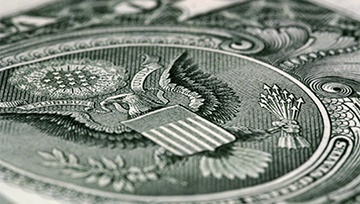Talking Points:
- The UK's FTSE 100 has enjoyed a remarkably consistent (14 days through Friday) rally to record highs in part on a weak Pound
- At its most basic, a weaker currency can translate into cheaper exports; but that isn't always the primary driver of value
- Japan's Yen and Nikkei 225 show a consistent relationship, while the USD and SPX seldom maintain a direct correlation
See the DailyFX Analysts' 1Q forecasts for the Dollar, Euro, Pound, Equities and Gold in the DailyFX Trading Guides page.
With the Pound under intense pressure these past months - and generally since the Brexit vote last June - the local FTSE 100 equity index has enjoyed a significant tail wind. While the correlation hasn't proven statistically robust until the most recent leg the past three weeks, the presumed fundamental correlation follows a simple economic line. It is presumed that a weak currency translates into greater foreign purchases of the cheaper exports and thereby a boost to growth. That line of thinking makes sense intuitively, but it in a practical and messy reality, it doesn't always hold water. For countries that aren't export dependent, have greater fundamental crosswinds or absorbs a greater risk for the same factor that drives the currency; exchange rates don't translate into a local market advantage or disadvantage.
At one end of the spectrum, the connection between the Japanese Yen and Nikkei 225 benchmark is exceptionally robust. Japan is particularly dependent on its exports to contribute to its economic health. A safe haven status in Yen crosses tends to align to the currency performance as the latter encourages the same flows promoted by the former (risk appetite in carry trade). The 20-day rolling correlation between the two is consistently strong and negative. In contrast, the relationship between the Dollar and S&P 500 stand in direct contrast. As the world's largest consumer economy, exports represent a far smaller percentage of total GDP. Further, the implications of an accelerated pace of Fed rate hikes appeals for the Dollar's returns while it also supports an economic confidence to back economic performance. What's more, the Greenback's status as the world's primary reserve amplifies and distorts its role.
Now back to the recent alignment between the Cable (GBP/USD) and UK index. A negative, 20-day correlation of -0.80 as of Monday and recent peak over -0.90 is extraordinary. It has also proven a frequent connection since the announced Brexit. A cheaper currency is a straightforward response to the uncertainty the UK-EU separation represents - though the persistence of the decline is not boundless. Given the UK is facing the loss of access to the trade-free, EU single market; the EUR/GBP climb helps to offset the rising cost. However, the beneficial economic aspect of this development has its limits. The economic and financial fallout from the United Kingdom's withdrawal will take a heavy toll on the country's earnings, economic activity and position in the global web. We discuss the connection between currency and local capital markets with a recent focus on the Pound in today's Strategy Video.
To receive John’s analysis directly via email, please SIGN UP HERE





